Judiciary employees from eight federal courts have received the 2018 Director’s Awards, which recognize outstanding performance, innovation, and dedication nationwide.
The recipients were nominated by colleagues based on career achievements and contributions to specific projects that have benefited their home courts and the federal Judiciary as a whole.
“The Director’s Awards recognize outstanding leadership, innovation and efficiency,” said James C. Duff, Director of the Administrative Office of the U.S. Courts. “The recipients exemplify the Judiciary’s commitment to serving the public.”
The awards were granted in five areas: Outstanding Leadership, Excellence in Court Operations/Administration, Excellence in Court Operations/Technology, Excellence in Court Operations/Mission Requirements, and the Director’s Award for Extraordinary Actions.
The Outstanding Leadership award, which had two recipients, is given to candidates who lead national endeavors to improve the federal Judiciary; exhibit exemplary stewardship of resources; lead innovations that improve service and use of resources; improve public access to and awareness of the role of the Judiciary; and enhance the image of the federal Judiciary.
The Excellence awards are based on a candidate’s demonstrated history of conducting court operations with economy and efficiency; fostering innovations that improve service locally or throughout the Judiciary; and enhancing the public’s awareness and image of the federal Judiciary.
The following are summaries of the 2018 recipients’ achievements:
Outstanding Leadership
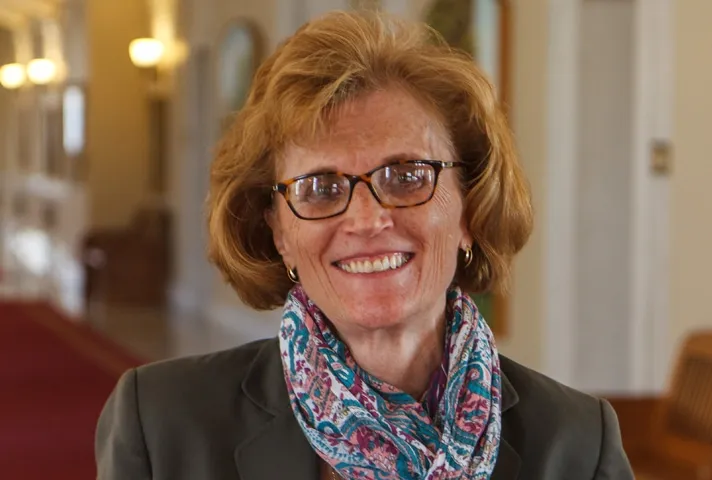
Elisabeth A. “Betsy” Shumaker, Clerk of Court for the Tenth Circuit, has led national initiatives in such diverse areas as finances and budgets, information technology, staffing formulas, and data governance.
Shumaker chairs the Appellate Clerks Advisory Group, and has served on the Budget and Finance Advisory Council, the Space and Facilities Advisory Council, the Appellate Court and Circuit Offices Work Measurement Steering Group, and the NextGen Project Steering Group and Advisory Board, which provides guidance on an update of the Judiciary’s Case Management/Electronic Case Files system.
“Betsy’s involvement in such a wide variety of important councils, committees and initiatives … speaks volumes of her stature as a national leader,” wrote Tenth Circuit Chief Judge Timothy M. Tymkovich in Shumaker’s nominating letter. “Betsy exemplifies the very best qualities of leadership in the federal Judiciary.”
Tymkovich credited Shumaker with leading an almost total conversion from paper to electronic dockets, resulting in greater access to litigants, lawyers and the public.

Lawrence K. “Larry” Baerman, who retired in August as Clerk of Court for the Northern District of New York, was an innovator and cost-cutter over his 38-year career.
When he joined the court in 1980, Baerman manually typed docket entries and made copies on mimeograph machines. From 2003 to 2015, he served on the Judicial Conference Committee on Court Administration and Case Management. In that role, he worked on initiatives related to the NextGen update of the Judiciary’s Case Management/Electronic Case Files system, records management, courtroom technology, and case management in congested courts.
“Larry’s ability to maintain his high level of involvement and commitment to excellence is nothing short of amazing,” wrote John Domurad, the district’s chief deputy clerk of court, in a nominating letter. “He has been a catalyst and proponent of innovative ideas to advance the interests of the federal Judiciary.”
As clerk of court, Baerman helped save the Judiciary tens of millions of dollars in rent costs through a billing-validation initiative that eventually was adopted nationally. He also spearheaded development of the Judiciary Electronic Disposal System. It automates and simplifies the process of complying with and documenting property disposal requirements, while broadcasting the availability of items to a larger audience.
Excellence in Court Operations — Administration

Back row, left to right: Shane Luck, Vicky Mizell, and Stacy Peters. Front row, left to right: Christina Eckert and Heidi Sultzbaugh.
Five Northern District of Ohio employees were honored for developing QuEST, a web-based tool and training process that dramatically improved the accuracy and consistency of online court records.
Director’s Award recipients were Vicky Mizell, chief deputy clerk of court; Stacy Peters, operations manager; Shane Luck, applications administrator; and Heidi Sultzbaugh and Christina Eckert, data quality analysts.
Most court documents are filed electronically, but data quality review is needed to ensure accurate docket sheets and Judiciary statistical reports. QuEST enables data quality analysts to review random samples of the initial records vetting and then provides detailed reports on errors that are found.
In the first quarter of its use, the QuEST system, supported by a new training manual and ongoing coaching, more than doubled the staff’s accuracy in vetting court filings. Today, all staff now meet or exceed the district’s accuracy standard.
“The benefits of the implementation of the QuEST system and program have been numerous, immediate, and visible to staff and management,” wrote Clerk of Court Sandy Opacich in a nominating letter. “We look forward to sharing the lessons learned in the development of our program and to be of service to our colleagues throughout the country.”
Excellence in Court Operations — Technology
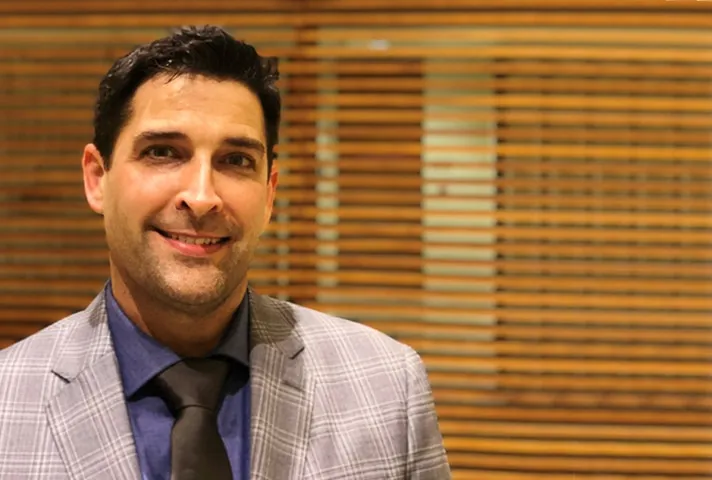
Erik Grubbs, IT Director for the District of Hawaii, has automated a system for preparing, reviewing, and approving court documents, greatly speeding the process by which they are approved, docketed, and served.
“Erik saw a very tedious and manual process that took days to complete and once automated, now takes hours,” wrote Chief Judge J. Michael Seabright. “The local U.S. Marshal’s Service now has an easy, automated way to receive warrants.”
Seabright noted that the manual warrant process required nearly a dozen separate steps, in which a printed document was physically transported to the judge for review, to the Clerk’s Office for filing, and finally to the Marshal’s Service for delivery. Drafting required extensive cutting and pasting.
Grubbs’ program, called FormFlow, automatically populates an electronic document template with relevant documents and information from Judiciary and probation office databases, and then gives each person in the sequence an automatic notification. Once each review is complete, a “submit” button moves the document forward with a digital signature and a selected action.
A judge can perform numerous functions quickly and electronically. These include approving a document (eg, 12C, warrant, etc.), scheduling a hearing, and enabling the document to be autodocketed and processed within hours of initiation.
Excellence in Court Operations — Technology
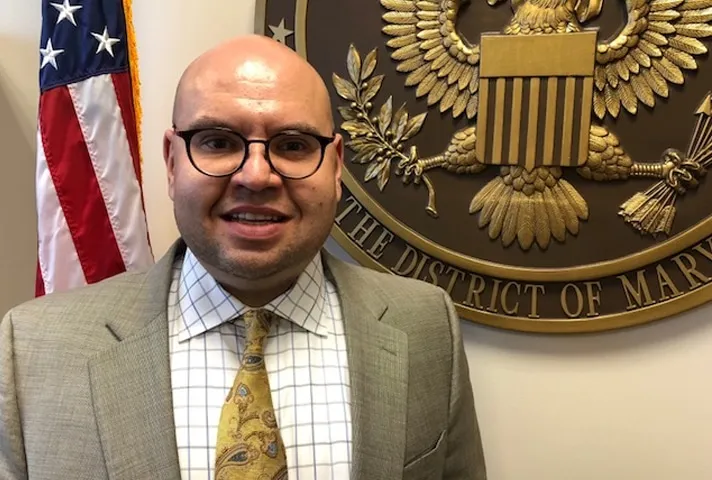
Peter Smolianski, Director of Information Technology for the District of Maryland Bankruptcy Court and the head of the district’s combined network shared services, enhanced automation, improved cybersecurity, and reduced costs by modernizing infrastructure, networks, and systems, as well as deploying upgraded courtroom technology and software solutions.
“Peter has the rare combination of superior technical expertise, an incredible work ethic, and a strong commitment to his team and the court, which allows him to shine in so many areas,” wrote Chief Judge Nancy V. Alquist and Clerk of Court Mark A. Neal. “Peter leads by example, and it rubs off on his team.”
Recognizing that cybersecurity tools must be backed by vigorous education and employee buy-in, he designed and administered numerous district-wide phishing simulations and cybersecurity awareness exercises. Aided by complementary teaching programs that Smolianski created and led, the district’s cybersecurity posture has improved significantly.
Smolianski implemented an integrated collaboration and enterprise content management system for the district, “providing significant efficiencies, economies of scale, and cost savings,” his nomination letter stated. “Peter is a passionate learner and a believer in constantly finding better ways of doing things.”
Excellence in Court Operations — Mission Requirements

From left to right: Kenneth P. Sheain and Jarrett B. Perlow.
Jarrett B. Perlow and Kenneth P. Sheain, of the Court of Appeals for the Federal Circuit, introduced new practices in their first 18 months to increase operational efficiency and quality of service to the court and to the public, while implementing cost containment practices designed to refocus the Clerk’s Office toward its mission-essential requirements.
With a goal of creating a stakeholder-centered operation, Chief Deputy Clerk Perlow organized a realignment of staff functions and core responsibilities within the office, which resulted in new function-based teams and a more evenly distributed workload. Sheain, the data quality and program manager, developed a series of training and data-driven initiatives designed to rapidly improve the quality of service from the Clerk’s Office.
“Mr. Perlow and Mr. Sheain have greatly enhanced the Clerk’s Office’s delivery of its mission-essential functions, with only a marginal increase in operating expenses during these months,” Circuit Executive Peter R. Marksteiner noted in their nomination letter. “By spending time and effort to smartly leverage the tools already at their disposal, they brought to bear a focus on achieving excellence in court operations that has produced profound results.”
Specific successes included implementing a modular case manager training program that reduced training time and costs; creating a quality assurance process that improved the accuracy of case data in CM/ECF and established a training feedback loop to improve staff performance; developing a new staff intranet portal to house newly-created training and procedural materials; and expanding stakeholder outreach programs and creating stakeholder-specific communication channels to reduce response time and to improve the quality of service delivered to chambers, the bar, and litigants.
Director’s Award for Extraordinary Actions
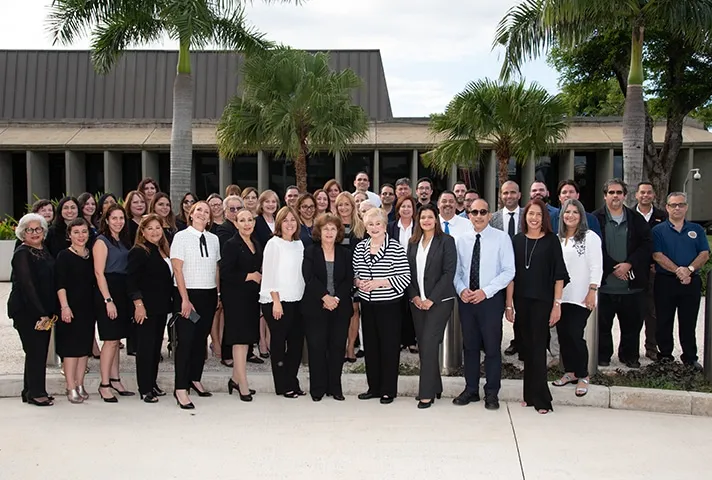
The staff of the Office of the Clerk of the District Court for Puerto Rico, and the IT manager of the Bankruptcy Court, were honored for their response to two major challenges: the human crises created by Hurricanes Irma and María, and their ensuing ability to provide uninterrupted operational support for judicial proceedings related to the island government’s massive financial default.
More than 80 district court employees, led by Clerk of Court Frances Ríos de Morán, were praised for their resilience, bravery, resourcefulness, and commitment to the court’s mission.
The District Court nominating letter was signed by five federal judges, including Gustavo A. Gelpí, Jr., chief judge of the District of Puerto Rico; and Aida M. Delgado-Colón, who was chief judge of the District of Puerto Rico at the time of the crises.
Also signing were Laura Taylor Swain, the district judge for the Southern District of New York who presides over the default proceedings under the Puerto Rico Oversight, Management, and Economic Stability Act (PROMESA); Barbara Houser, the chief judge of the Northern District of Texas Bankruptcy Court, who leads the PROMESA Mediation Committee; and Judith Gail Dein, magistrate judge for the District of Massachusetts, who is assigned to the PROMESA case.
The nominating letter praised court staff for creating new protocols to manage the unique legal proceedings under PROMESA, a district court case in which more than 100,000 claims have been filed and which requires concerted coordination within the district and with other district courts.
The District and Bankruptcy Courts’ challenges became more daunting when Hurricane María struck Puerto Rico as it was still coping with the aftermath of Hurricane Irma. The electrical grid was destroyed, leaving the entire island without power; nearly all internet and cell phone communications were cut off; and a large number of rivers reached or exceeded record flood stage.
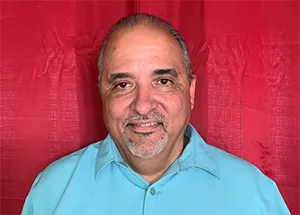
Félix Martínez
According to a separate Bankruptcy Court nominating letter, IT manager Felix Martinez responded instantly after Hurricane Maria struck, and worked tirelessly to help co-workers and protect the court’s IT systems. He also facilitated internet capability within the courthouse for bankruptcy lawyers, so that they could continue to represent clients.
Maria de los Angeles Gonzalez, clerk of the Bankruptcy Court, wrote that Martinez drove through hazardous conditions to establish contact with a second Bankruptcy Court in Ponce, providing workers with satellite phones so that they could communicate with the main court in San Juan.
“Despite the island’s state of total chaos, hours-long lines for gas, cash, food, water, lack of electricity island-wide, no cellular service, Mr. Martinez was always the first to arrive at work providing services to internal and external users,” Gonzalez wrote in the Bankruptcy Court letter. “His work ethic and profound human integrity and values are widely recognized in our circuit.”
Despite the devastation, the District Court renewed limited court operations within three days. The Human Resources Department promptly activated emergency communication, and screened and identified personnel needs. The IT staff kept computer and communications systems operational despite daily power interruptions and other technical challenges, while also providing service to the Probation Office.
Case docketing activity did not slow down during the disasters. While many lawyers were on the mainland, the Clerk’s Office employees used their personal generators to help sustain docketing operations, allowing them to react to filings throughout the unprecedented aftermath of the storms.
Non-docketing staff in the Finance Department also faced challenges when the court authorized panel attorneys to file interim vouchers in order to receive payments. This caused an avalanche of vouchers to be filed. The staff’s extraordinary effort to process these vouchers gave attorneys over $1.5 million in the time of a crisis.
The staff in the Operations Department provided court operations support, including setting up a plan to set and track hearings, coordinate videoconferences, and monitor the statuses of 1,500 pre-trial detainees transferred to Mississippi, Georgia, Florida, and Alabama.
The district court’s Clerk’s Office staff’s response accomplished this while dealing with personal and family crises; lack of food, potable water and fuel; and structural damage to many of their homes.
Court staff responded to community needs by coordinating a blood donation drive within the court, law enforcement, and legal communities. With the Federal Bar Association, the court also coordinated assistance to those who needed to file claims with FEMA. The court also allowed jury rooms to be used as classrooms by the University of Puerto Rico School of Law, enabling students to resume the academic semester while the institution was still without power.
At “a time when the entire island was in complete crisis, this team kept the mission of the Judiciary vibrant and moved it forward,” the nominating letter concluded.
Subscribe to News Updates
Subscribe to be notified when the news section is updated.
